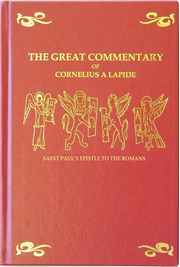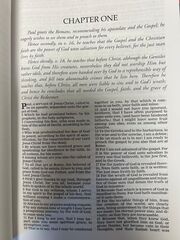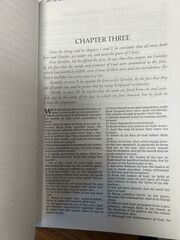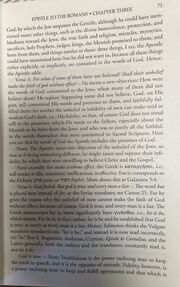Original translation from the Latin text of the Commentary of Cornelius aLapide on on the Book of Romans by Michael Miller - 528 pages Sewn Hardcover
This book starts with a 49 page introduction on St. Paul: his wisdom, style of writing, virtues, preaching, martyrdom, and miracles.
This is followed by aLapide's collected commentary on the book of Romans, chapter by chapter.
Included in the book is the Rheims New Testament text fo the Letter to the Romans.
Sample Text:
WHO WAS S. PAUL?
WHAT KIND OF A MAN, AND HOW GREAT?
Eight gifts and extraordinary prerogatives should be considered and admired in S. Paul. First, his honorable descent and talent; second, his marvelous vocation and grace; third, his uncommon wisdom; fourth, his heroic virtues; fifth, his efficacious, fruitful evangelization; sixth, his illustrious martyrdom; seventh, his miracles, and eighth, his fame and glory.





